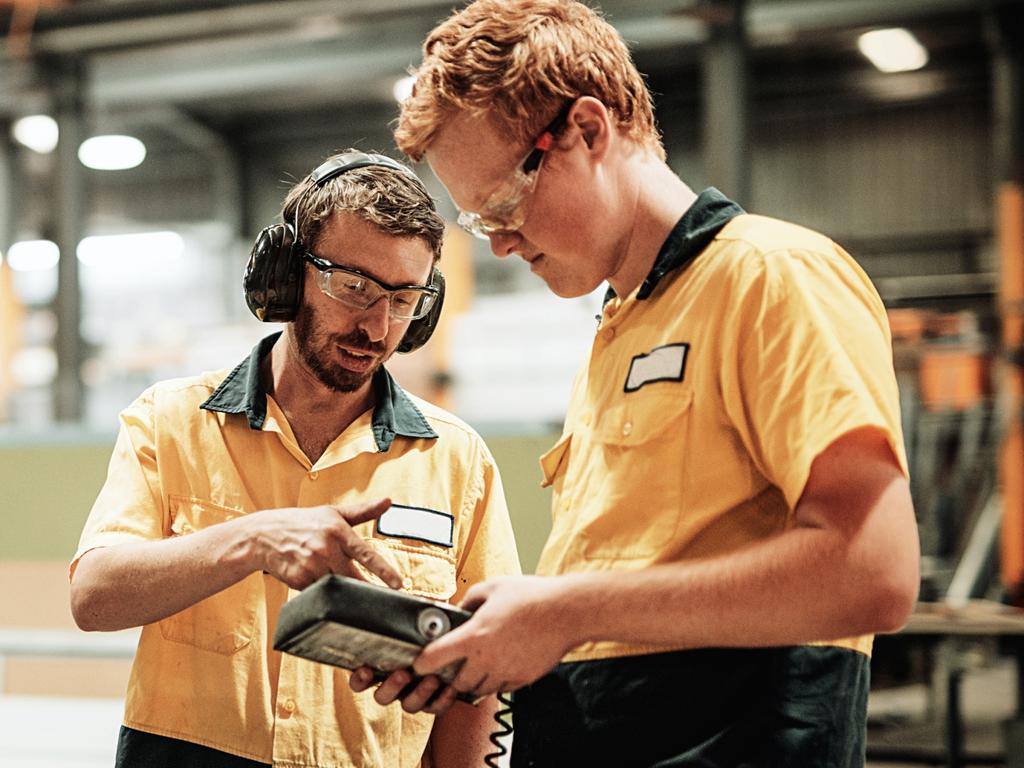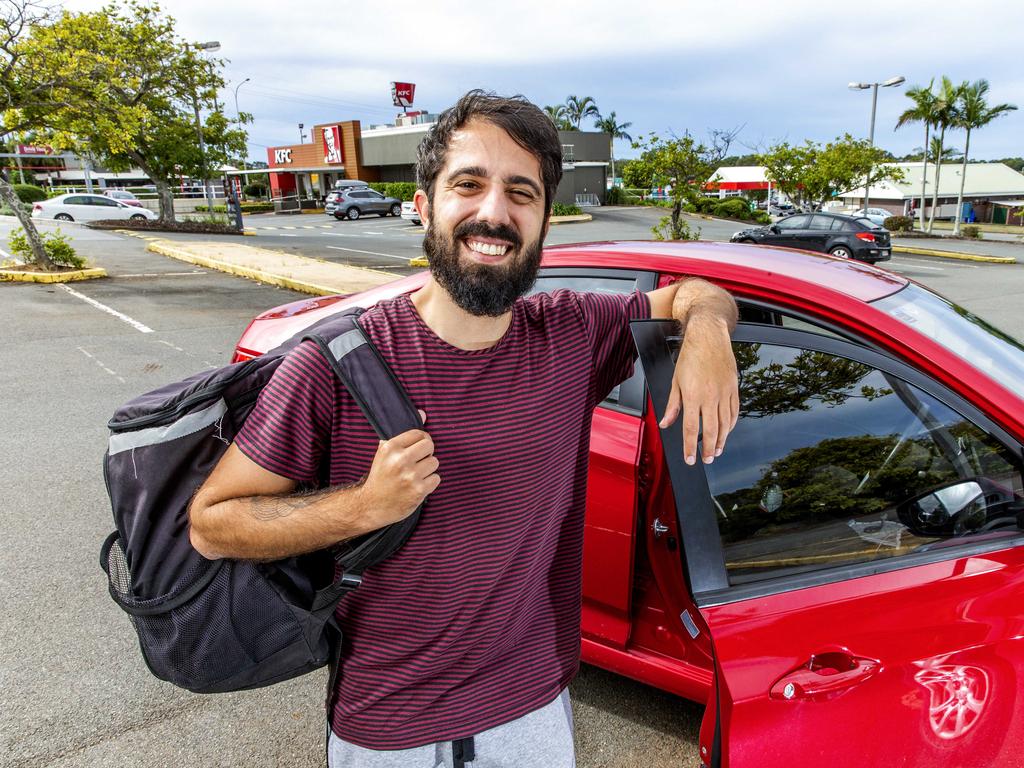Futurists predict the jobs that will emerge in Australia in the future
These are the key areas where jobs are predicted to grow across Australia in the future, as businesses realise the benefits of a broad skill set and ability to adapt.

Careers
Don't miss out on the headlines from Careers. Followed categories will be added to My News.
Jack of all trades, master of none.
With Australia’s employment landscape in for a major overhaul, futurists predict people with a broad range of skills will be favoured over specialists in the new job market.
Futurist Chris Riddell said: “Being a specialist in one area now will narrow you into a much more siloed field than being a generalist.”
“(Choose something) part technology, part interpersonal skills, and focus on emotional intelligence and soft skills as well as functional skills.
“Ten years ago being a generalist was a bad career move but now it will serve you well. “Things are changing so quickly – a better plan is to have a broad set of skills you can use to pivot and adapt.”
Experts have also predicted a renewed respect for science, increasing reliance on technology, and newly-discovered gaps in supply chains will create demand in sectors from manufacturing and logistics to medical technology and finance.
Already, Australians are preparing for the post-coronavirus job market by upskilling and retraining.
Exclusive LinkedIn data revealed a 57 per cent increase in time spent on LinkedIn Learning courses since isolation began in March.
Mr Riddell and Ideas With Legs reinvention expert and innovation futurist Nils Vesk shared their predictions for the jobs and skills of the future:
MANUFACTURING
“We are going to see an up-swell of manufacturing in Australia,” Mr Riddell said.
“But I have to put a big caution sticker on that – it won’t be a return to manufacturing of cars or any of those industries that have left Australia, it will be an uprising of more boutique manufacturing.
“I think there is a going to be a general appetite for that swing back and I can assure you governments will throw their weight behind making that as easy as possible.”
Mr Vesk said demand would likely centre on advanced manufacturing experts with backgrounds in robotics, mechatronics, automation and quality assurance.
LOGISTICS
Mr Vesk said the need for a stronger domestic supply chain was likely to create roles in logistics and systems analysis.
He predicted people would also not return to face-to-face retail at the same levels as before the pandemic, creating jobs in delivery and warehousing.
“People will think ‘Unless you can wow me with a physical experience, I am going back to (online shopping),” Mr Vesk said.
“Shipping costs are going to come down because there is that much more demand for it, so there will probably be an increase in warehousing and consignment.”

HEALTH
Mr Riddell said roles for nurses, doctors and midwives would continue to grow at previous rates, but there would also be added demand for the technology side of healthcare.
He predicted FitBit-style wearables that collected health data would become more widely used and create new work.
Mr Vesk said social distancing regulations had brought teleconsultations into the mainstream and he expected they would remain into the future.
“We are finding all kinds of online applications that will continue post-coronavirus,” he said.
“There will definitely be more jobs looking at teleconsulations.”
He also predicted an increase in roles surrounding mental health.
INFORMATION TECHNOLOGY
Software programmers and cloud computing experts would be needed as new technologies were introduced to combat workplace safety issues and allow people to work productively from home.
For example, Mr Vesk predicted demand for voice activation technology in hygiene-friendly applications such as contactless entry to work buildings.
“IT security is another big one as well,” he said.
“With so may people working online and predictions for that to continue post-coronavirus, there will be big demand there.”

SCIENCE
Mr Vesk said the pandemic had renewed Australia’s respect of science and this could translate into job growth, too.
“People have more of an understanding that science has an important role to play,” he said.
“Over the last five years with climate sceptics, people have been disrespecting what science is. “People in the scientific and technical services will probably find more funding – maybe not in all areas of research (but around things like) epidemiology, data, statistics.”
FINANCE
As people and businesses reassessed their financial situation amid the pandemic, Mr Vesk predicted a need for professionals who could help.
“There will be some personal finance coaches that will get a lot of (business),” he said.
“There will be a lot more insolvencies and certain businesses bought out so activation on all different levels there.”
START-UPS
Budding entrepreneurs could also take advantage of gaps left in the market by the pandemic’s economic fallout.
“Businesses that were OK and established but didn’t have huge capital may be wiped out (so) smart operators will set up their own (version),” Mr Vesk said.
“(Start ups) are flexible, have the technology and can partner with larger companies.
“We will find a bit of movement in that so there might be associated work – for example, marketing for start-ups.”

DELIVERING JOBS INTO THE FUTURE
Drive Yello courier Gustavo Sanches has experienced first hand the increased demand for deliveries since COVID-19 reached Australia.
He originally joined the app-based platform in December to earn extra money on the side of his two other jobs, but these were both in the tourism sector so are now on hold.
“I used to do courier jobs complementing my wages but now it’s my first option,” he said.
“It’s saving me.”
Mr Sanches, 32, lives on the Gold Coast but often drives to Cleveland to increase his chances of being assigned delivery jobs.
“Usually, I park nearby somewhere I know there is a Woolworths or BWS and wait,” he said.
“They call me when they need me and if I am around I accept it.
“I arrive at the supermarket and they have already put it in the trolley so I just need to handle the trolley and put it in my car.
“I think Australians are getting used to ordering online and demand is getting higher and higher.”
Drive Yello had a 2000 per cent increase in businesses signing up for it’s software and pool of drivers since the pandemic.
More than 2000 new couriers also joined but Drive Yello is still seeking about 700 more in areas such as Townsville and Rockhampton in Queensland; Wollongong, Woy Woy and Toronto in New South Wales; Darwin in the NT, and Bunbury in Western Australia.
Founding chief executive Steve Fanale said they were looking for people who wanted flexible work and could supply their own van, car or bicycle.
“We are seeing a massive increase in demand on the back of the crisis and lockdowns, but I see that continuing to grow post-COVID-19,” he said.
“Retailers that have adapted their systems and changed the way they conduct business to cater for this period are not going to just stop doing it.
“On the consumer side, once you have a taste for that level of convenience, sometimes it’s harder to go back to the norm.
“We are currently estimating we will see continued growth for the next 12 months that would be higher than we could have expected otherwise.”
News Corp , in partnership with recruitment technology provider Shortlyster, is launching the Australian National Talent Registry to connect jobseekers with employers in a new way that recognises their skills and experience and matches them to vacancies as they are advertised.
TO SIGN UP TO THE AUSTRALIAN NATIONAL TALENT REGISTRY, CLICK ON YOUR STATE NSW, VICTORIA, SOUTH AUSTRALIA, QUEENSLAND.

